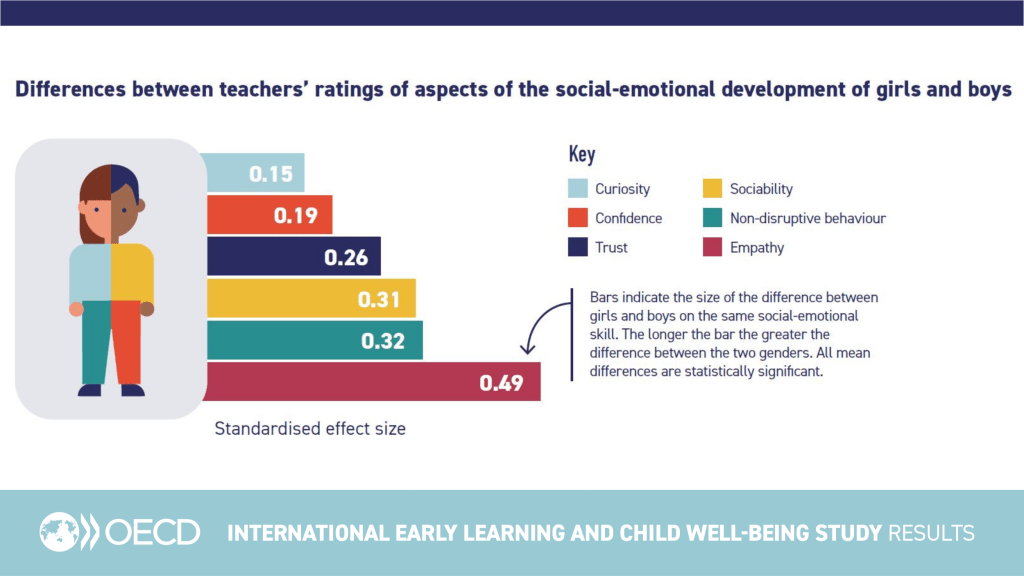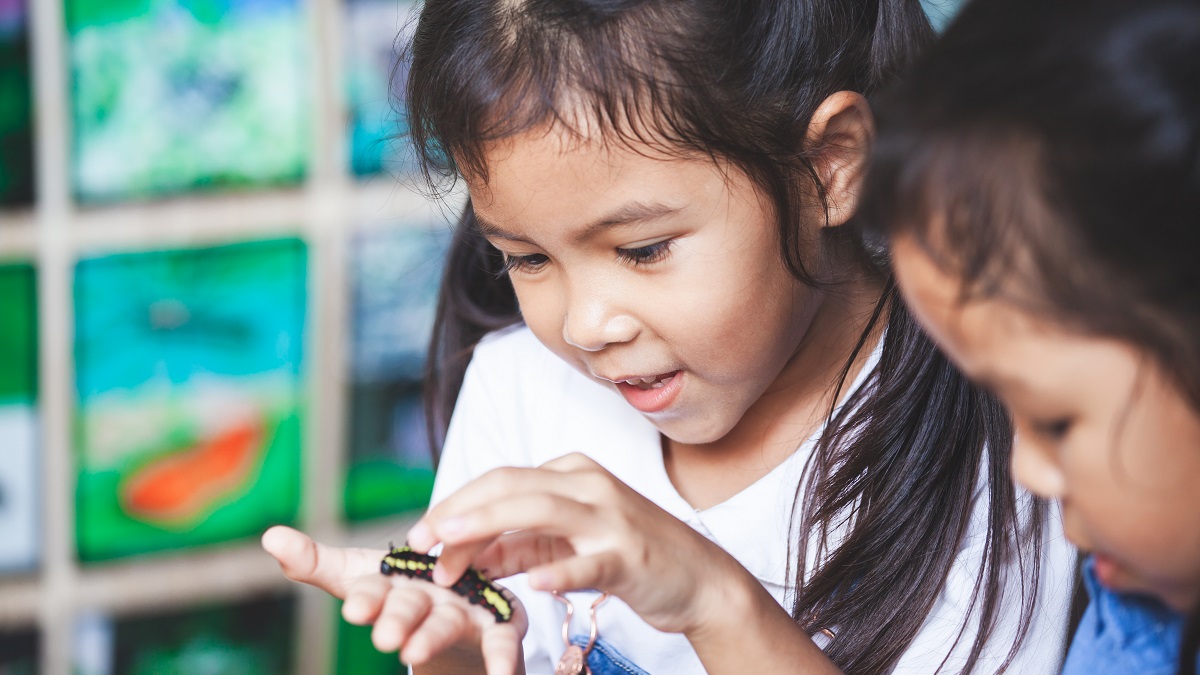By Rowena Phair
Project Leader, OECD Directorate for Education and Skills
Key points:
– New OECD data show that curiosity is the social-emotional skill most strongly linked with children’s early cognitive development
– Gender gaps in social-emotional skills at a young age may explain the gender gap in early cognitive development
– Social-emotional skills are closely linked to health and well-being, so encouraging their development from the early years is important
Children used to be told that “curiosity killed the cat”, as a way for parents to slow down the onslaught of questions their children asked. It is tough as a parent to face “why” questions on a daily basis, especially when you have no idea how to answer them and haven’t thought about these things, at least since you were your child’s age.
As a child I would retort with: “but information brought the cat back”, believing that curiosity was helpful, for me at least.
Curiosity is strongly linked to children’s early cognitive development
The International Early Learning and Child Well-being Study shows that curiosity is indeed helpful, finding strong relationships with five-year-olds’ learning in emergent literacy, numeracy, mental flexibility and even in children’s abilities to retain and recall information. Curiosity is more strongly linked to these early cognitive outcomes than the other areas of early social-emotional development included in the study, such as being confident or well-behaved, as illustrated below.

Perhaps these results are not surprising. When we are curious about something, we are motivated to find out more and be resourceful in doing so. It is certainly easier to learn about things we are interested in and curious about than those things that bore us. And it is probably also not surprising that curiosity is often linked to creativity, including the ability to generate new ideas and to try original ways of doing things.
Unlike most aspects of social-emotional development, we are born with an innate abundance of curiosity. Very young children want to know about the things they can see, touch and taste, if of course, they are in a safe, nurturing environment. This natural, innate curiosity thrives in supportive home and early learning environments, where children are encouraged to ask questions, explore and express their interests. In contrast, children’s natural curiosity is suppressed in environments where their wonder and interest in the world is ignored or punished, rather than praised.
Girls’ stronger skills in empathy and sociability helps more than being better behaved
Girls are often reported to have stronger social-emotional development than boys, and they often do better at school, at least in the early years. This is sometimes attributed to girls being better behaved than boys, and being more willing to comply with the expectations of their teachers. Yet, as the previous graphs illustrate, being well-behaved has a relatively weak relationship with cognitive development.
The International Early Learning and Child Well-being Study shows us that girls have higher reported levels of empathy and are more sociable than boys. This may better explain why girls’ emergent literacy skills in particular are higher than those of boys, given the relatively strong relationship of empathy and sociability with early literacy development.

Social-emotional skills – an essential ingredient for success and well-being
Intelligence alone is not enough to ensure children succeed at school, or go on to become happy, healthy, productive adults. We are all aware of students who were very bright, but did not do well at school. For some students this was because they could not sustain attention, delay gratification, persist when things became difficult, or work well with other students.
Similarly in the workforce, we meet people who are very strong cognitively and appear to have great careers ahead of them. When they cannot work co-operatively with others or take direction, however, they find their career stalls. Others are promoted ahead of them and their prospects narrow.
Social-emotional skills help us to control our impulses, make sound health and financial decisions, and build and sustain positive relationships with others
Social-emotional skills are closely related to health and well-being outcomes. These skills help us to control our impulses, make sound health and financial decisions, and build and sustain positive relationships with others. We are more likely to be a good partner, parent, friend and neighbour. And we are more likely to report that we are satisfied with our lives than people with lower social-emotional skills.
The skills needed to succeed in a modern, dynamic economy and society go beyond knowledge and cognitive ability. They require mental flexibility, creativity, the ability to influence and to work collectively with others, and the resilience to cope with change and setbacks. Thus, the link between social-emotional skills and future success and well-being will likely strengthen over the coming decades. We are thus well advised to pay attention to children and young people’s social-emotional development, from the early years onwards.
Read more:
- Caring, sharing, daring: Social-emotional development at age five
- Full international report: OECD International Early Learning and Child Well-being Study
- Video: Andreas Schleicher presents the key findings of the study
- The OECD’s wider work on child well-being
- Blog: Gender norms are clearly evident at five years of age
- Blog: Early learning gaps are stark, but can be successfully mitigated
Photo: Shutterstock/A3pfamily


